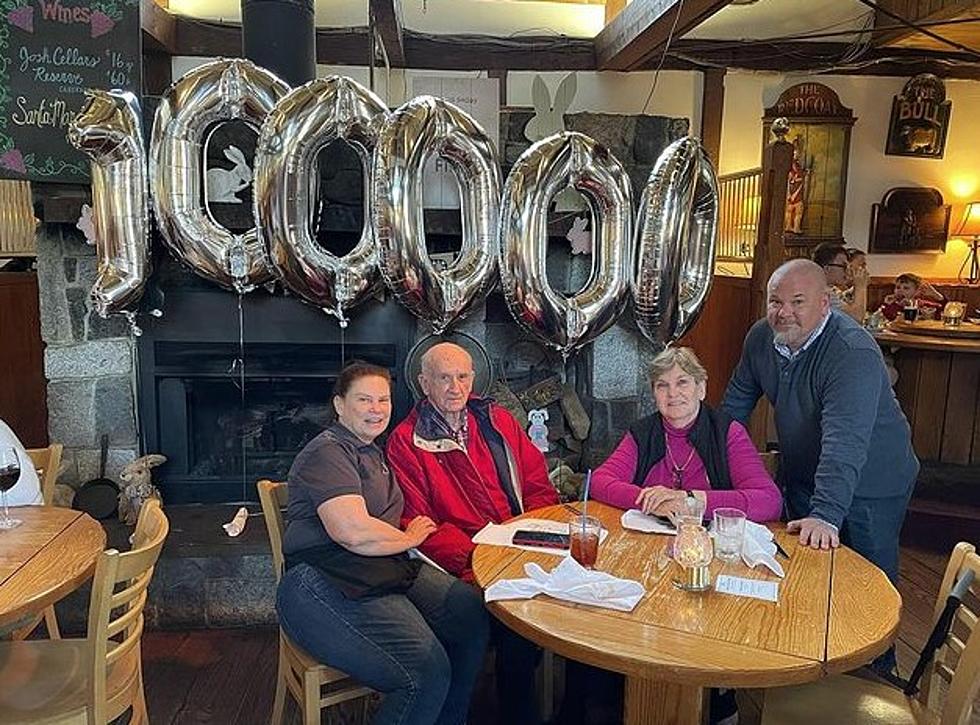
Some NJ hospitals using AI to catch early cancerous growths
🏥 Artificial intelligence is reviewing CT scans at some NJ hospitals
🏥 AI is being used to spot early-stage lung nodule cancer
🏥 It could soon be used in other types of medical tests as well
There’s plenty of speculation about how artificial intelligence will be used in the years to come, but AI is already being used to save lives and improve outcomes at some New Jersey hospitals.
According to Dr. Amit Borah, an interventional pulmonologist for AtlantiCare, AI has been used to help physicians identify pulmonary nodules that are or may become cancerous. AtlantiCare has been using the techonology since October 2022.
He said for decades people have had this kind of nodule identified but frequently they don’t follow up appropriately and sometimes an early-stage cancer turns into a much more serious late-stage cancer.
Helping to identify a problem
Borah said AtlantiCare has partnered with the Optellum Virtual Nodule Clinic to use an AI program that takes a look at every scan done at AtlantiCare and other medical facilities in the region. If a scan appears concerning, the program informs those involved in the patient's care.
“We’ve already detected a few hundred nodules through the artificial intelligence in just a few months. We’ve already had patients who have had to come to our clinic for biopsies,” Borah said.
He noted some of those patients have had surgery and others have had radiation.
It's a life-saving tool
As is the case for other cancers, early detection in lung cancer cases gives patients a greater chance of survival.
“For the individual patient that we find lung cancer early, this would be a life-changing event,” Borah said.
Additionally, the treatment course will be different the earlier the cancer is caught.
“The difference between early-stage lung cancer and late-stage lung cancer is unimaginable. You go from a curative intent in your treatment to what we call palliative treatment, meaning we’re just going to keep you going for as long as we can,” Borah said.
Sarah Dean, a nurse practitioner for AtlantiCare, said long-term cigarette smokers may have regular scans of their chest but for non-smokers that’s not the case.
For many people, these incidental lung nodules wouldn't have been discovered early.
"Patients wouldn’t have otherwise found these unless, say they’ve been in a car accident or they have stomach discomfort and they’re having this scan for some other reason,” Dean said.
Borah said after different tests are run, the AI program assigns a risk score to all nodules found in people’s lungs by using various calculators.
"If it is a low risk nodule, maybe they don’t need anything. Maybe we just keep an eye on it with serial CT scans,” Borah said.
Getting the complete picture
Borah said having a nodule detected doesn't mean it's cancerous.
“There’s also a lot of nodules that are not cancerous, and knowing when to not do something is just as important,” Borah said.
He pointed out when you apply AI to all the myriad of testing that a person can go through, “for even the smallest thing, there’s a lot more information that we can glean from all of this testing that can hopefully catch things early and lead to better outcomes for patients.”
David Matthau is a reporter for New Jersey 101.5. You can reach him at david.matthau@townsquaremedia.com
Click here to contact an editor about feedback or a correction for this story.
LOOK: The 25 least expensive states to live in
Biggest NJ company layoff notices in 2022 and 2023
Weird things NJ taxes - and some they don't
More From SoJO 104.9 FM










